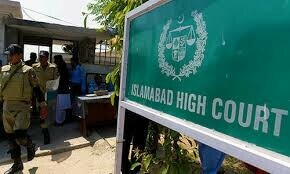ISLAMABAD: Azad Jammu and Kashmir (AJK) President Sardar Masood Khan on Monday stressed the need for taking a dynamic approach to solve the water and Kashmir issues between Pakistan and India.
He was speaking at the launching ceremony of a book titled “Hydro-Diplomacy: Preventing war between nuclear armed Pakistan and India” at Institute of Policy Studies (IPS) Islamabad. The book is authored by former secretary water and power Ashfaq Mahmood.
The president said that the gravity of the water issue could be gauged from the fact that per capita water had dropped from 2,172 cubic meter to 1,306 cubic meter between 1990 and 2015, which could be authenticated by international bodies such as World Resource Institute and UNDP.
He said that Pakistan should be smart enough to know Indian tactics of delay and termed them as “pass-masters”, the tactic which India also uses by presenting Pakistan-India tensions as a smokescreen to complete its hydro-projects such as Baglihar, Wullar Barrage, Kishanganga dams at a faster pace.
Sardar Masood said that had Kashmir been the part of Pakistan as a natural course of history in 1947, the present black-mailing position of India as upper-riparian state would not have been there.
The author of the book Mr Ashfaq Mehmood said that the purpose of undertaking this project was to inform the people about the nature and various facets of this highly critical issue of looming water crisis and the developments that take place behind the curtains of diplomacy that seldom come in the knowledge of the ordinary people.
“By informing and educating the public and the intelligentsia alike, it is expected that solid and effective steps will be taken proactively by the civil society, think tanks and other power sectors of Pakistan in order to move towards resolving this highly sensitive issue with no further time wasted,” he said.
Former ambassador of Pakistan to the United Nations and member of the board of governors SDPI Shafqat Kakakhel highlighted the important points raised by the author in the book.
Executive Director IPS Khalid Rahman commended the author on writing a book on a topic of national importance in simple language to educate the readers of all backgrounds.
Former Secretary Energy Hamid Hasan said Indus Water Treaty was signed in an environment where Pakistan needed to ensure food security, but with the passage of time the shortcomings of the treaty regarding emerging issues such as environment, increase of population, non-resolution of Kashmir dispute have become quite evident.
Published in Dawn, October 23rd, 2018
Download the new Dawn mobile app here:










































Dear visitor, the comments section is undergoing an overhaul and will return soon.